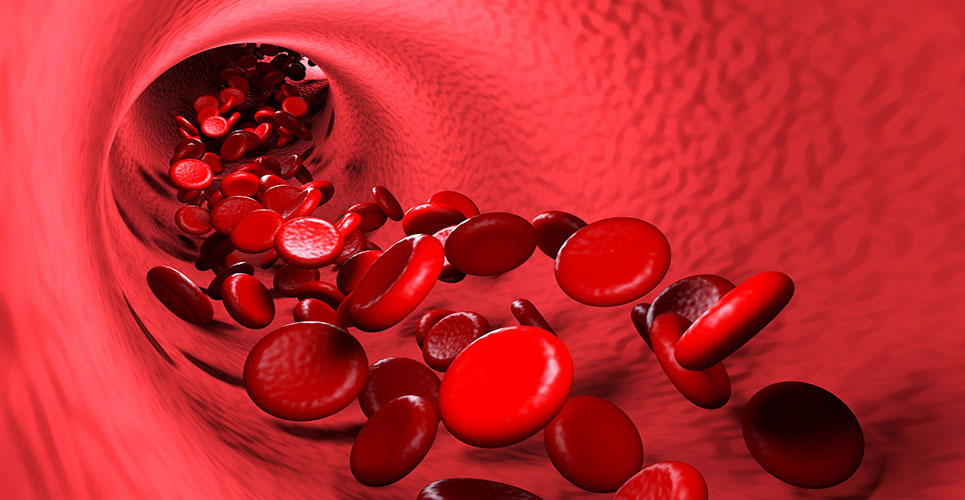teaser
Novartis announced today 24-month data showing that Tasigna® (nilotinib) continues to surpass Glivec® (imatinib)* in the treatment of adult patients with newly diagnosed Philadelphia chromosome-positive chronic myeloid leukemia (Ph+ CML) in chronic phase.
These new data, from the first Phase III comparison of the two oral therapies as initial treatment for this blood cancer, were presented at the 52nd Annual Meeting and Exposition of the American Society of Hematology (ASH) in Orlando, Florida.
With this longer-term follow-up at 24 months, first-line treatment with Tasigna at 300mg twice daily was found to result in a lower incidence of progression to accelerated phase and blast crisis, compared to the standard approved dose of Glivec 400mg once daily. Patients receiving Tasigna also had a lower incidence of suboptimal response and treatment failure as defined by study criteria.
These data also showed that Tasigna induced deeper and more durable complete cytogenetic response (CCyR) and major molecular response (MMR) compared to Glivec, as well as a significantly higher rate of an even deeper response – a trace amount of 0.0032% or less of the Bcr-Abl protein that causes Ph+ CML, which is considered a complete molecular response (CMR).
Fewer patients taking Tasigna in the study discontinued treatment due to adverse events compared to Glivec. Tasigna and Glivec were generally well tolerated.
“These 24-month Phase III data extend the evidence of clinical benefit for newly diagnosed patients with chronic phase Ph+ CML treated with Tasigna, compared to Glivec,” said Timothy P. Hughes, MD, ENESTnd study investigator and Clinical Professor at the University of Adelaide, Australia.
“Now we can begin to evaluate the long-term treatment outcomes of patients who achieve and maintain deep reductions in Bcr-Abl on Tasigna.”
Rates of MMR and CCyR remain statistically higher for Tasigna versus Glivec at the 24-month minimum follow-up.
MMR was achieved by 71% of patients taking Tasigna 300mg twice daily and 67% of patients taking Tasigna 400mg twice daily, compared to 44% of patients taking Glivec by 24 months.
Durable MMR rates were statistically significantly higher in the Tasigna 300mg twice daily and Tasigna 400mg twice daily arms compared to Glivec 400mg once daily (42%, 39% and 21% respectively). Significantly more patients achieved CCyR in the Tasigna 300mg and 400 mg arms compared to the Glivec arm at 87% and 85% versus 77% respectively by 24 months.
The US Food and Drug Administration (FDA) and Swissmedic have approved Tasigna in this first-line indication.
In September, Novartis received a positive opinion from the Committee for Medicinal Products for Human Use (CHMP) recommending European Commission approval for Tasigna for this indication.
Regulatory submissions are under review in the European Union, Japan and other countries worldwide.
This year, Novartis also began a collaboration with molecular diagnostics company Cepheid to develop a new FDA cleared/approved Bcr-Abl test, which adheres to the International Scale.
The goal of the collaboration is to help doctors more reliably monitor Ph+ CML patients.
Cepheid and Novartis also will develop a next generation test, which is expected to enable even more sensitive testing, indicating the depth of a patient’s response to tyrosine kinase inhibitors, including Tasigna and Glivec.
Currently there are no FDA cleared/approved tests to monitor for Bcr-Abl.
“The creation and introduction of Glivec revolutionized the treatment of Ph+ CML by substantially improving overall survival rates for patients,” said Hervé Hoppenot, President, Novartis Oncology.
“We are encouraged by the ongoing clinical development of Tasigna as a new treatment showing that at 24 months it continues to surpass Glivec in slowing disease progression in patients with newly diagnosed chronic phase Ph+ CML.”
Another study will be presented at this year’s annual ASH meeting which provides further support for the use of Tasigna in patients with newly diagnosed Ph+ CML.
The Gruppo Italiano Malattie Ematologiche dell’Adulto (GIMEMA) study, an ongoing, open-label, single-stage, multicenter Phase II clinical trial, will be presented on Monday, December 6, 2010.
*Known as Gleevec® (imatinib mesylate) tablets in the US, Canada and Israel.

